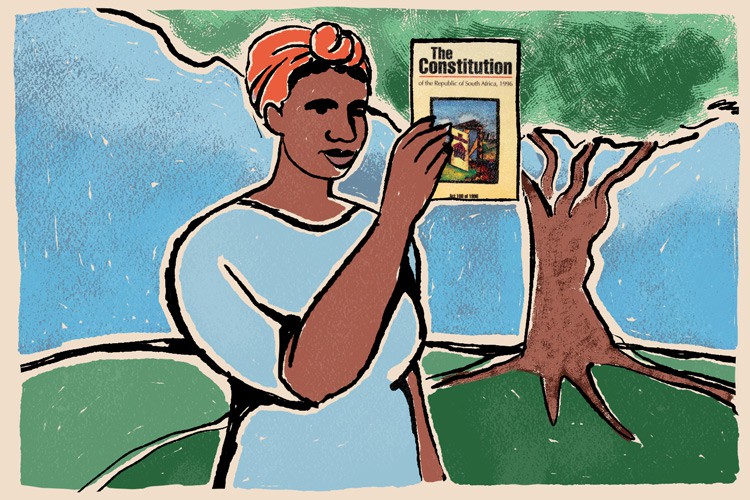
1 May 2025
The trade union movement fought against incredible odds to help bring about the transition to a democratic South Africa. Graphic: Lisa Nelson
For most trade unions and worker movements around the world, May Day 2025 will be celebrated more with a whimper than a bang. The widespread jubilation, pride and determined optimism of the fairly recent past will be missing as a largely weakened and fragmented labour movement struggles to grapple with 21st Century reality.
Times have changed — and are certainly changing ever more rapidly as the proclaimed Fourth Industrial Revolution gathers pace. The future of work and, therefore, the future of trade unions is now uncertain. The gains of recent years — even, in some regions, the gains of many decades — are threatened or are being clawed back.
There are also echoes now from over the past century of the rise of authoritarianism fuelled by racist, religious and even linguistic nationalisms, which have morphed in some regions into ethnic cleansing and mass slaughter. The prime sufferers, once again, are the working people, employed and unemployed.
And it is the resilience and fortitude of often brutalised and exploited workers who organised to become a bulwark against greater deprivations visited upon the poor and dispossessed that May Day traditionally celebrates. Theirs was a long, hard, and often bloody road that, especially given the present economic and social context, needs to be studied and understood by anyone hoping for a better and more democratic world.
In Chicago, in May 1886, a peaceful mass rally of workers, who dared to dream of a truly democratic future, was attacked by police. That gave us May Day as a celebration of courage and fortitude. And like the “Durban Moment” strikes of February and March 1973, which gave rise to the modern South African union movement, that single event had a history that echoes across the years.
In Chicago, four activists, two of them journalists, one a printer and the other a carpenter, became the victims of what is widely described as a legal lynching. They were among the organisers of a rally calling for an eight-hour working day to be introduced. They were arrested and sentenced to be hanged.
Seconds before they died together on the gallows, journalist August Spies shouted: “The time will come when our silence will be more powerful than the voices you strangle today.” That statement reverberated around the world and, in 1890, the “Haymarket martyrs” were honoured by naming 1 May as the day of labour solidarity.
There are many echoes from quite recent local history of that travesty in the United States and the events leading up to it. In our part of the world village, it was a largely democratic, worker-led and militant trade union movement that fought against incredible odds to help bring about the transition that we celebrated this week as Freedom Day.
Yet the union movement is weaker today and more fragmented, at a time when the reality of a greedy and exploitative minority dominating and profiting from the labour of the majority is, if anything, clearer than a century ago: the overall social and economic circumstances that gave rise to unity among sellers of labour the world are still present.
But what has happened over the past century has been the gradual absorption of much of the labour movement into the profit-driven system. With few exceptions, trade unions have, to varying degrees, lost their way; they have become bureaucratic replicants of the very system they were founded to oppose.
At the same time, there is the constant call to “go back to basics”.
Yet the most basic principle — unity of all workers — is still not widely acted on. This principle was summed up in a poem written in 1820 by Percy Bysshe Shelley after troops killed peaceful worker protesters in England in 1819. The pertinent stanza reads: “Rise, like lions after slumber/ In unvanquishable number!/ Shake your chains to earth like dew/ Which in sleep had fallen on you: Ye are many—they are few!”
This idea of the democratic unity of the majority of exploited humanity was even more clearly spelled out 28 years later by Karl Marx and Frederich Engels when they provided the slogan: “Workers of all countries unite!” They added: “You have nothing to lose but your chains.”
Those chains are still very much still in place and May Day is a time to review this reality. For trade unions, it is not a matter of adapt or die, but rather how organised labour can, may or will adapt as finite resources are plundered, mass murders are sanctioned and the planet becomes increasingly polluted in the cause of private profit.
It is a grim outlook. But workers are still organised and there are small, but quite strong signs that new, highly democratic, unions are emerging, often from previously unorganised workers. A return to the basic principles of the labour movement is possible, and it is essential for the sake of the future.